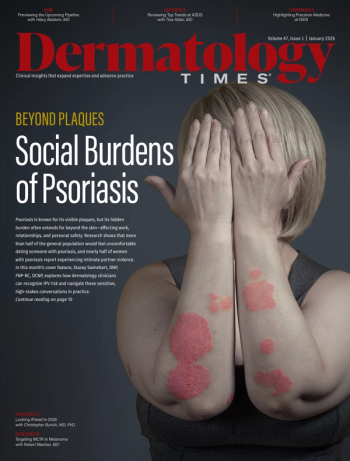
POLL: Would You Consider Utilizing Virtual Reality in Your Practice or to Further Your Education?
Click here to answer today's poll and read more about recent uses of VR in dermatology education and practice.
They developed a VR application to teach students how to conduct skin cancer screenings on virtual patients, integrating it into the curriculum. Students interacted with virtual patients, gathered medical history, conducted examinations, and classified lesions.
The study found that VR was technically feasible, enhanced learning outcomes, and was well-received by students. Participants varied in their ability to identify melanomas in different cases, with generally positive feedback on the realism and usefulness of the VR simulation. The study suggests that VR holds promise for enhancing dermatology education, researchers wrote.
At the 2023 Society of Dermatology Physician Assistants Annual Fall Dermatology Conference in Nashville, Tennessee, Joe Cari, MPAS, PA-C, a physician assistant in Highlands Ranch, Colorado, presented a session titled,
One of Cari's "extra" solutions for addressing common pain points found in the waiting room of dermatologic practices, such as the situation's boring and uncomfortable nature, was to introduce VR environments.
Cari frequently recommended VR availability in clinics and practices as a means to improve the patient experience. This, he said, may represent the future of anxiety relief in patients.
Would you consider implementing VR in your practice or use it as a tool to further your education?
Let us know by answering our poll below, connecting with us on social media, or by emailing us at
Would you consider utilizing virtual reality in your practice or to further your education?
References
- Junga A, Schmidle P, Pielage L, et al. New horizons in dermatological education: Skin cancer screening with virtual reality. J Eur Acad Dermatol Venereol. March 18, 2024. Accessed March 21, 2024.
doi:10.1111/jdv.19960 - Cari J. From the parking lot to check out: tips for a great patient experience. Presented at: 2023 SDPA Annual Fall Dermatology Conference: October 26-29, 2023; Nashville, TN.
Newsletter
Like what you’re reading? Subscribe to Dermatology Times for weekly updates on therapies, innovations, and real-world practice tips.










